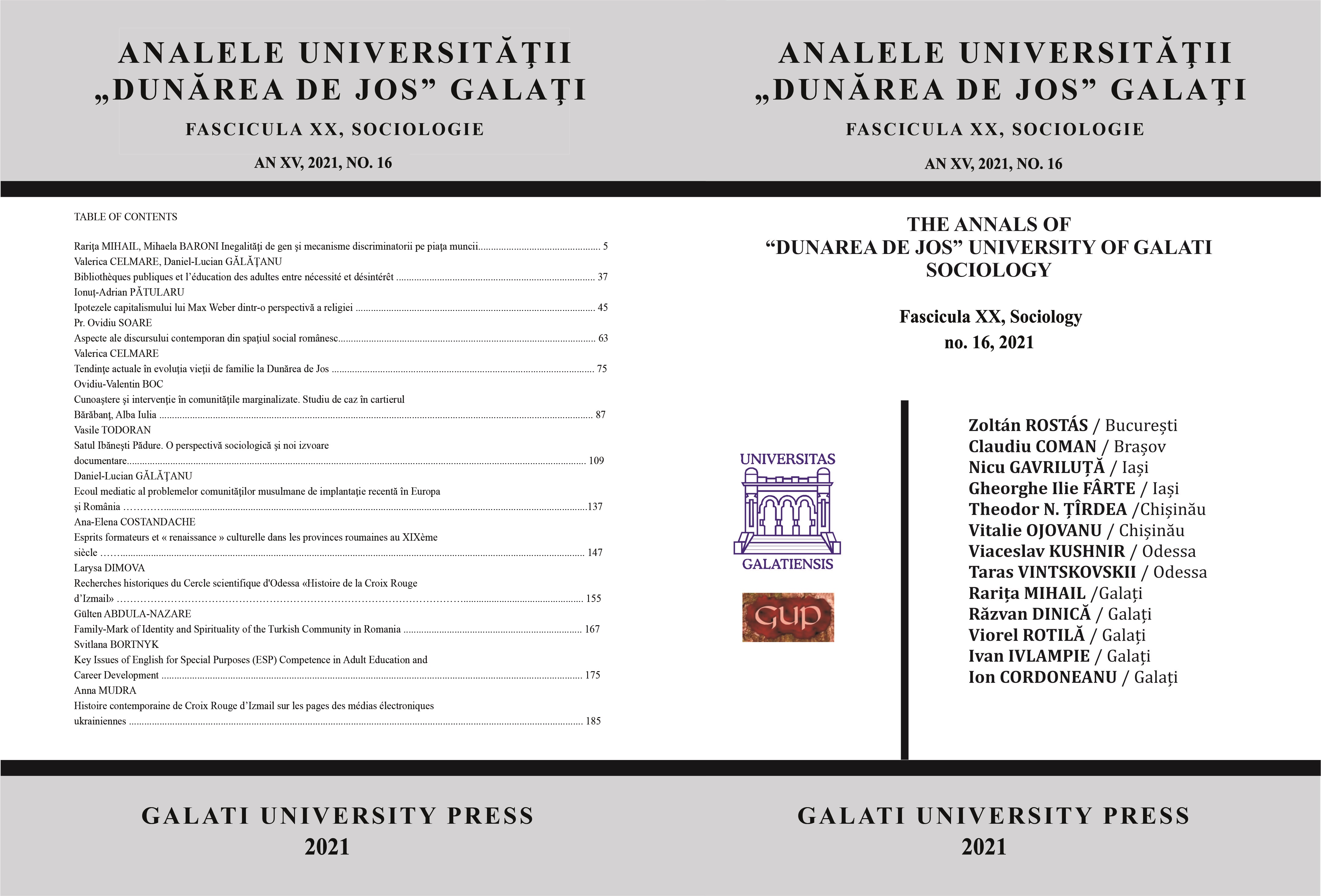Key Issues of English for Special Purposes (ESP) Competence in Adult Education and Career Development
Key Issues of English for Special Purposes (ESP) Competence in Adult Education and Career Development
Author(s): Svitlana BortnykSubject(s): Foreign languages learning, Adult Education, Higher Education , Pedagogy
Published by: Galaţi University Press
Keywords: language learning; English for special purposes /ESP; English for Academic Purposes /EAP; professional education; needs analysis; placement test; language skills;
Summary/Abstract: The main aim of the foreign language learning is to form the foreign language communicative competence. The reality is such that we could not even imagine what jobs will appear on the labour market in the nearest future in the conditions of increasingly developing information society. There is a kind of a gap between the demand and offer of language skills and this gap should be bridged if want to integrate as equal members of the European community. Currently we can distinguish three paradigms of professional education: cognitive-oriented, activity-oriented and personality-oriented. But currently there is also competence-oriented paradigm, where the main priority is not a mere knowledge accumulation, but the formation of various skills, wish and ability to study life-long. Nowadays there is a variety of innovative language education types which appeared in response to social and economic needs: online education, distance learning, electronic learning, cross-cultural learning, multi-lingual learning, resource-based learning, virtual education, problem-based learning, technology-based learning, project-based learning, flexible learning, active learning, case-based learning, discovery learning, digital learning, blended learning, web-based learning, computer-aided learning, situation-modelling learning, debatable issues learning, content-based instructions method and many others. The main distinguishing feature of the foreign language teaching for special purposes is its communicative bias, based on the following methodological principles: authenticity, informative richness, novelty, functionality, actuality. The processes of globalization and internationalization influence the system of higher education demanding changes in syllabuses and curricula structures and contents, especially of foreign language for special purposes.
Journal: Analele Universității „Dunărea de Jos” din Galați, Fascicula XX, Sociologie
- Issue Year: 16/2021
- Issue No: 1
- Page Range: 175-183
- Page Count: 9
- Language: English

